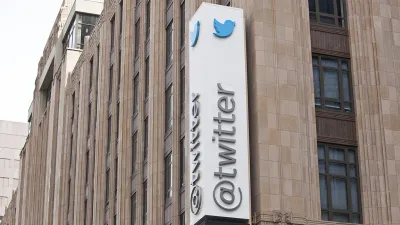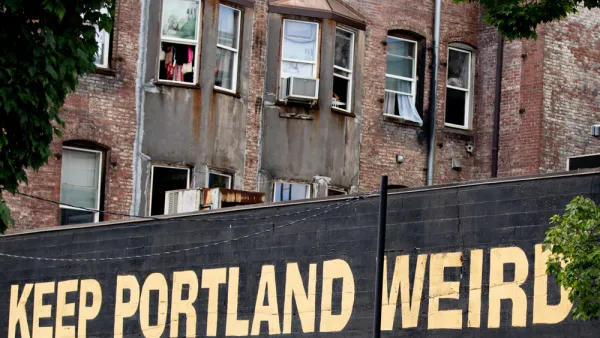Facing calls to invest in racial equity, companies like Netflix, Twitter, and others have recently pledged millions in new financing for affordable housing, small businesses, and other community development projects. Will they stick around?

Corporate America has traditionally been content to sit out of conversations about hot-button issues. But as the Movement for Black Lives gained steam in communities large and small last year in the wake of the murder of George Floyd, a Black Minneapolis man killed by the officer who was arresting him, many companies found it difficult to ignore the pressure from employees and the public to take a stand. For some companies, that took the shape of symbolism such as making Juneteenth a paid holiday for employees or, in the case of NASCAR, banning Confederate flags from events. Many other companies pledged millions of dollars in support of racial justice initiatives and investments in Black-owned businesses.
Given the deep racial inequalities in both rental housing and homeownership in the United States and housing’s link to the country’s racial wealth gap, it is of little surprise that the affordable housing and community development world has recently received substantial investment and philanthropy from big companies looking to support racial justice.
In December 2020, Netflix pledged a $25 million loan to community development intermediary Enterprise Community Partners’ new Equitable Path Forward initiative to fight racial inequities in housing. The initiative has also been seeded with a $5 million loan from Northern Trust financial services company and a $1 million loan from Siemens manufacturing company. Netflix also loaned $25 million to Project 10X, the racial equity initiative of LISC, the country’s other major community development intermediary. LISC also received $25 million each in loans from Square and Costco. LISC and Enterprise both operate community development financial institutions.
In November of last year, Twitter pledged to invest $100 million and give a $1 million grant to Opportunity Finance Network’s (OFN) Finance Justice Fund, which aims to direct $1 billion in CDFI funding to underserved communities. Starbucks also announced $100 million in investments in CDFIs. Last year, MacKenzie Scott donated $5.9 billion to nearly 500 nonprofits and charities, including 27 CDFIs in OFN’s member network, as part of her pledge to give away the majority of her tens of billions in Amazon wealth.
The new corporate interest in community development comes on the heels of big tech’s 2019 commitments to invest significant sums into affordable housing, including a $2.5 billion pledge from Apple, $1 billion pledges from Facebook and Google, and a $500 million pledge from Microsoft.
CDFIs are, understandably, thrilled with the hundreds of millions of dollars in investments coming their way that they can funnel to affordable housing developers, small businesses, and other community development projects. They say that because these corporations are not concerned with having their investments match up with specific assessment areas to fulfill their obligations under the Community Reinvestment Act (CRA)—as the large banks and financial institutions that have traditionally invested in affordable housing are—the new funding should stretch further and have a broader geographic reach. And though few people are criticizing corporations for making multimillion-dollar affordable housing and community development loans, some in the affordable housing world say there’s a lot more that companies could do with how they structure the loans, the size of the gifts they make, and where they direct their money to really move the needle on the housing crisis.
Putting Money to Work
Enterprise Community Loan Fund President Lori Chatman says the way the pandemic and racial justice protests have highlighted societal inequities have spurred companies to act. “It has brought us to a place where more folks who have the ability to have influence and make a change are opting to do so. . . . I want to seize the moment and show them all the benefits we can have for a bigger impact on society.”
The Equitable Path Forward initiative seeks to ...
FULL STORY: Finance and Chill? Big Tech Flirts with Community Development

National Parks Layoffs Will Cause Communities to Lose Billions
Thousands of essential park workers were laid off this week, just before the busy spring break season.

Retro-silient?: America’s First “Eco-burb,” The Woodlands Turns 50
A master-planned community north of Houston offers lessons on green infrastructure and resilient design, but falls short of its founder’s lofty affordability and walkability goals.

Delivering for America Plan Will Downgrade Mail Service in at Least 49.5 Percent of Zip Codes
Republican and Democrat lawmakers criticize the plan for its disproportionate negative impact on rural communities.

Test News Post 1
This is a summary

Test News Headline 46
Test for the image on the front page.

Balancing Bombs and Butterflies: How the National Guard Protects a Rare Species
The National Guard at Fort Indiantown Gap uses GIS technology and land management strategies to balance military training with conservation efforts, ensuring the survival of the rare eastern regal fritillary butterfly.
Urban Design for Planners 1: Software Tools
This six-course series explores essential urban design concepts using open source software and equips planners with the tools they need to participate fully in the urban design process.
Planning for Universal Design
Learn the tools for implementing Universal Design in planning regulations.
EMC Planning Group, Inc.
Planetizen
Planetizen
Mpact (formerly Rail~Volution)
Great Falls Development Authority, Inc.
HUDs Office of Policy Development and Research
NYU Wagner Graduate School of Public Service





























